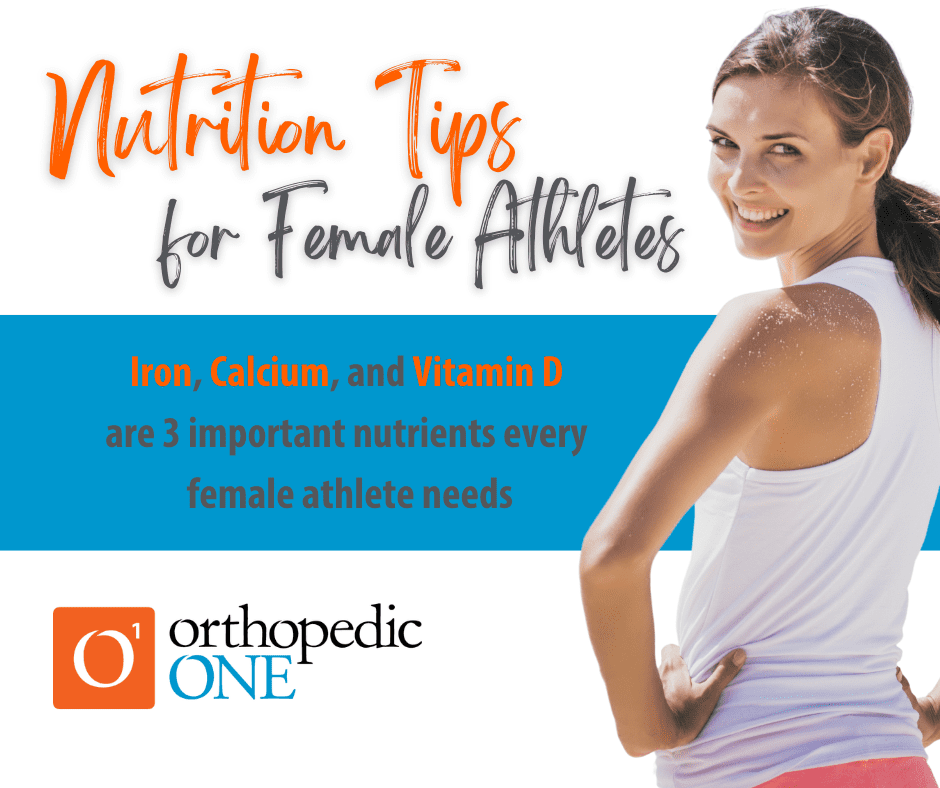NUTRITION FOR FEMALE ATHLETES
Female athletes have special nutrition needs outside of traditional sports nutrition.
First and most importantly is energy balance.
Energy balance is when an athlete is eating enough calories to match their need for daily activities, training and reproductive needs. While both males and females can have a negative energy balance, it is more common in females.
A good indicator of having a positive energy balance is regular menstrual cycles. Often when we are eating too little our menstrual cycles will stop so that the energy our body is getting can be put towards processes that are necessary for survival. Irregular or missing menstrual cycles negatively impact health. This is due to the alteration of our hormones which impacts bone strength, immune health, appetite, and more. It is also important to remember that a menstrual cycle caused by contraceptives is synthetic and can be masking a low energy balance.
Other nutrients important for the female athlete are iron, calcium, and vitamin D.
Females need more iron due to its loss during menstrual bleeding. Iron is a mineral found in animal proteins, as well as some plant proteins and leafy greens. Iron is important for delivering oxygen to our bodies and can cause us to feel lethargic if levels are low. Iron absorption can be optimized by eating iron-rich foods that contain vitamin C, which can be found in most fruits and vegetables.

Calcium and vitamin D are needed for bone health and muscle contractions. Females continue to accrue bone until their mid-20s, but are at a higher risk for weak bones than males due to their higher estrogen levels. It is important to eat enough calcium so that our body does not pull calcium from our bones and further weaken them. Weak bones lead to higher risk for injury and osteoporosis. The daily recommended intake of calcium is about 1,000 mg per day. This can be reached easiest by eating dairy foods like milk, yogurt, and cheese.
Additionally, many milk-alternatives and cereals are fortified with calcium, but it is best to check nutrition facts labels to ensure you are getting enough.
Vitamin D is a nutrient that aids in calcium absorption. Vitamin D recommendations are 1000 IU per day in those normal blood levels. It is very hard to reach your vitamin D recommendations through food. Most people get their vitamin D through exposure to the sun’s UV rays. This means that athlete’s who play indoor sports may be at a higher risk for vitamin D deficiency. Symptoms of deficiency include lethargy, muscle weakness and weak bones.
Overall, eating a balanced diet and eating enough is going to optimize performance and prevent injury.
Feelings of tiredness, frequent injury and abnormal menstrual cycles could be a sign of inadequate nutrition and calories and should be evaluated. In these cases, seek out a dietitian or contact your primary care physician.